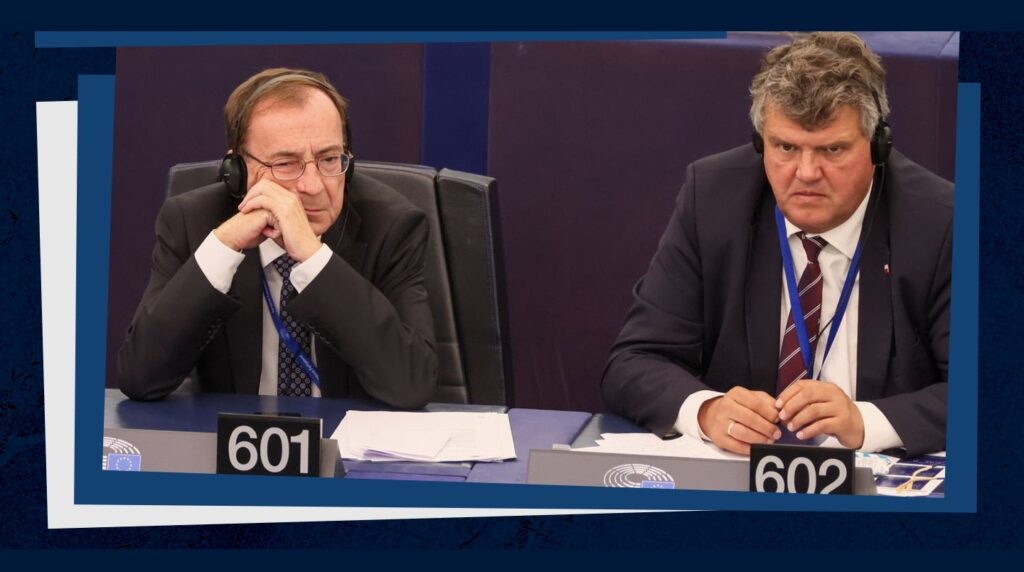The following is a translation of an article written by Anna Demeter, originally published in Magyar Krónika.
Fierce honesty, clear, dreamlike melodies, and pleasant homeliness—Rebeka Méry, who, according to her own definition, works in the world of dreamfolk, comes from a family with a strong, trans-border Hungarian identity, where passion for culture has always been a natural part of everyday life.
‘I am one of five siblings, our mother is a teacher, and our father has been telling us about history with a passion like no one else in our circles for as long as I can remember. The values according to which they faithfully lived and which we inherited is a gift I can always rely on as a solid foundation,’
the young singer begins the telling of her story. Rebeka, perhaps less consciously, was inspired by her parents when it comes to the direction of her future career as well.
Because of the extensive artistic education, Rebeka, like her siblings, went to music school, learned to play an instrument, then performed in the church choir in Somorja. Thereafter, acting of her own volition this time, signed up for classical singing lessons.
She recalls: ‘I got to know folk music collections during the lessons from my teacher named Imre Németh. He has frequently given concerts in Rye Island [Csallóköz, the largest river island in Europe] with his still-active early music ensemble. As a secondary school student, I could also often travel and sing with them within the walls of medieval churches. It touched me how much power performing arts have in such an elevated space: the audience also relates to the music differently there, and I shift the focus to something outside my control, too. [In those situations,] I can be a mediator.’
After she graduated from secondary school, the sacredness tinging the songs, as well as her interest in folk culture and history eventually led her to choose ethnography as her college major; thus she can only observe her hometown from a distance today.
Rebeka describes her Slovakian–Hungarian identity in the Hungarian capital as ‘splendid statelessness’.
She explains: ‘Ferenc Kulcsár’s poem “Otthon” (“Home”) truly touched me during my university studies in Budapest, and the line about “splendid statelessness” expressed the difference between “here-home” and “there-home” even more so: the border crossing between the two, the essence of my patriotism, and the vocation of my life’s journey. During this period, my love of music, which I have had since childhood, became even more important to me.’ For the latter, the creative community of the band Tindia, which soon appeared in Rebeka’s life, provided her with the perfect background. In addition to the popular, joint dance house performances at the Gólya Cafe, they also recorded an album together.
A few years ago, Viktor Fehér, the musician and creative producer of Kerekes Band, who was filming his documentary series Folkkocsmák világa (The World of Folk Pubs) at the time, also came to a Tindia dance house performance. That was when he first met Rebeka. ‘It is nice that we got to know each other through music. Earlier, I would not have thought how important it is for a relationship to be built on the same set of values and common foundations. Viktor is now my husband; back then, he helped the work of our band, and now he supports my personal career with all his heart and soul,’ she recalls. In addition to her band, Rebeka also wants to express and form her own relationship with folk music, as she ‘feels the need to convey what she has brought from home.’
Feelings captured through self-taught guitar lessons, experimenting with the zither, and creating melodies without a set of rules—these are what shaped Rebeka’s life in Budapest during the pandemic. Folk songs served as the ideal tool to arrange all that. ‘I added the right sounds to the current images that appeared in my mind, and finally, I chose folklore texts for the corresponding feelings. When writing the title track of my first single, Messzire (Far Away), I was concerned with setting out on my journey, the possibilities of a new route, and the drift of such a new experience. While ruminating about these ideas, I kept humming a beautiful Moldovan Csángó folk song about patriotism—I like this kind of expression, as it means that I let the song and the story live on in me,’ the young singer explained.
Méry Rebeka – Messzire
A Messzire című dalt az álomszerűen sejtelmes hangzás, a dúdolás, az énekes többszólamúság, valamint a zenei puritánságban kiteljesedő dalfolyam jellemzi, amely legjobban talán a dream-folk kifejezéssel írható le.
‘Madárka’ (‘Little Bird’), the second song of the mostly pop music-style single, is a similarly sentimental, meditative song, but its editing was more conscious than its predecessors’. ‘With the first album, I tried to find and describe the creative genre suitable for the compositions, which was finally best summed up in a somewhat own creation, the trend of dreamfolk,’ Rebeka pointed out. This folk music-based, mysterious, ethereal texture also pervades the second single, Világolj (Illuminate), already moving towards world music. ‘In Világolj and Ima (Prayer), my zither acted as a kind of leader, but the various elements finally came together to make a whole in the studio, for which I am especially grateful. It was interesting to experience how I can shape the songs according to my sound world in the studio,’ the singer added. This is how Rebeka’s voice takes us to the Zobor Hills in Slovakia, where the local Hungarians sing the songs of Midsummer Night’s fire rituals, and where we can also hear a prayer based on an old Christmas folk song.
Many of us are present in this world in many ways, and according to the young singer, it is therefore much more difficult to find our true, deeper selves. She suggested that
‘folk songs are the basis of our common culture. If I can open up in my music with genuine honesty, maybe others will also feel the preserving force that our roots give us.
To an outside observer, my music may seem a bit sad and too meditative, but if people can relate to just a small part of it, it is already worth it.’ But do we allow ourselves to have this kind of connection and empathy? Are we taking the time today to be carried away by a mood? According to the young talent, ‘there is always a need for silence, even if we are often afraid of what we hear about ourselves without all the noise. Nowadays, we live more on the extroverted side of folk culture, whereas not long ago people did not just dance or have fun. Their everyday lives were defined by hard work, for which silence, prayer, and deep faith were equally essential, which somehow we consider less important today.’
It is not only Rebeka’s voice, but also her character that strongly highlight something good in our world. ‘We were born with various abilities, and it is our duty to exploit them to their full potential,’ she emphasised, adding with a smile that we will always need beauty and value, since even a world in which everything can be bought cannot completely suppress our true needs. This is also the case even if today folk musicians need multiple sources of income in order to stay afloat and be able to convey this message to the people. ‘Music is an elementary thing, for which I hope there will always be a demand, but for now, I am not at a stage yet where I can exclusively do it for a living,’ she reflected.
In fact, this may not be the long-term goal—Rebeka feels that lately she has become much more self-reflective through music, and based on her own experience, she wants to show others what it feels like when we summon and experience our own natural selves.
She concluded by saying: ‘Besides the continuous expansion of my music portfolio, I also recently completed a life coach training course so that in addition to music, I could convey how important it is to build on one’s strengths through another channel as well.
The basic elements of our existence are true dialogues and honest moments, and it is simply an elementary need to lift our spirits sometimes. I want to help people do that.’
Related articles:
Click here to read the original article








